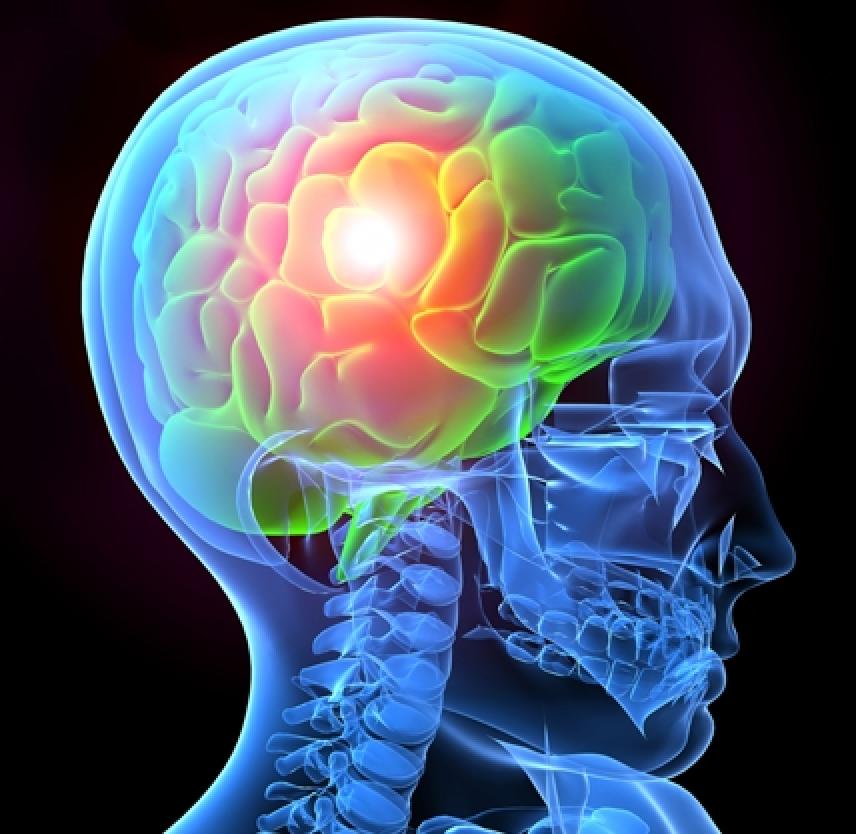Traumatic brain injuries (TBIs) and post-traumatic stress disorder (PTSD) are both serious conditions that can have a major impact on your life. It is important to know the facts about these conditions so that you can get the help you need if you or someone you know is affected. In this blog post, we will discuss the symptoms of TBI and PTSD, as well as how they are treated. We will also provide resources for those who need help finding treatment.
Contents
What Are TBI And PTSD?
 TBI and PTSD are both serious conditions that can have a profound impact on a person’s life. TBI, or traumatic brain injury, is a type of injury that occurs when the head is subjected to a sudden and powerful force. This can happen as the result of an accident, fall, or blow to the head. PTSD, or post-traumatic stress disorder, is a condition that can develop after someone has experienced a traumatic event. This event could be something like combat, sexual assault, or a natural disaster. While TBI and PTSD share some similarities, there are also some important differences between the two conditions.
TBI and PTSD are both serious conditions that can have a profound impact on a person’s life. TBI, or traumatic brain injury, is a type of injury that occurs when the head is subjected to a sudden and powerful force. This can happen as the result of an accident, fall, or blow to the head. PTSD, or post-traumatic stress disorder, is a condition that can develop after someone has experienced a traumatic event. This event could be something like combat, sexual assault, or a natural disaster. While TBI and PTSD share some similarities, there are also some important differences between the two conditions.
There are many different symptoms that can be associated with TBI. These can range from mild to severe, and they can vary depending on the individual. Some of the most common symptoms of TBI include headaches, dizziness, fatigue, difficulty concentrating, memory problems, mood swings, and depression. In some cases, people may also experience seizures or sleep disorders. If you have suffered a head injury, it is important to see a doctor as soon as possible so that you can be properly diagnosed and treated.
Relationship Between TBI And PTSD

The relationship between TBI and PTSD is complex. A person with TBI may be at increased risk for developing PTSD, and a person with PTSD may be at increased risk for developing TBI. There are many factors that can influence the development of both conditions, including the severity of the injury, the individual’s coping skills, and social support.
When someone experiences a TBI, the event is often unexpected and can be very stressful. The person may feel scared, confused, and helpless. These feelings can be even more intense if the person witnessed someone else being injured or killed. All of these factors can contribute to the development of PTSD.
People with TBI may have difficulty processing what happened to them. They may also have problems with memory, concentration, and sleep. These difficulties can make it hard for them to talk about their experiences or to understand what others are saying to them. As a result, they may withdraw from social activities and become isolated. This isolation can make it difficult for family and friends to provide support and can further increase the risk of developing PTSD.
In conclusion for both, TBI and PTSD are serious conditions that can have a profound impact on an individual’s life. If you or someone you know has experienced a TBI, it is important to seek medical attention as soon as possible. If you or someone you know is experiencing symptoms of PTSD, please contact a mental health professional for help.
Differences Between TBI And PTSD

The differences between TBI And PTSD are vast. TBI is classified as a physical injury, whereas PTSD is classified as an emotional disorder. However, both can have long-lasting effects on the individual.
TBI usually results from a blow to the head or a penetrative injury to the brain, which can cause bruising, bleeding, or swelling of the brain tissue. This can lead to cognitive impairments, such as difficulty with memory and concentration, as well as physical impairments, such as paralysis or loss of sensation.
PTSD, on the other hand, is caused by exposure to a traumatic event, such as witnessing a natural disaster or being the victim of violence. This exposure can lead to symptoms such as flashbacks, nightmares, and avoidance of triggers that remind the individual of the event. PTSD can also cause difficulty with concentration and memory, as well as anxiety and depression.
Another difference is that TBI is typically treated by medical professionals, while PTSD is often treated by mental health professionals. This is because the symptoms of TBI are primarily physical, while the symptoms of PTSD are primarily emotional.
There are also differences in the impacts of TBI and PTSD. TBI can lead to a loss of consciousness, while PTSD does not. TBI can also cause physical impairments, such as paralysis, while PTSD does not.
It is important to note that both TBI and PTSD can have long-lasting effects on the individual.
Negative Impacts of TBI And PTSD

There can be many negative impacts between TBI and PTSD. Some of those are:
Isolation
One of the most common symptoms after a TBI is feeling isolated and alone. This can be due to the physical and cognitive changes that occur after the injury. For example, someone with a TBI may have trouble communicating or may not be able to participate in activities they used to enjoy. This can lead to feelings of loneliness and isolation.
PTSD can also cause isolation as people may avoid certain places or activities that trigger memories of the trauma. People with PTSD may also withdraw from friends and family as they struggle to cope with the disorder.
Depression
Depression is common among both TBI survivors and those with PTSD. The physical changes that occur after a TBI, such as damage to the brain’s frontal lobe, can lead to changes in mood and behavior. People with TBI may also have difficulty coping with the changes in their life and may feel hopeless about the future.
PTSD can also cause depression as people relive the trauma over and over again. They may also have negative thoughts about themselves, the world, and other people.
Anxiety
Anxiety is another common symptom of both these disorders. People with TBI may be anxious about their injury and the changes it has caused in their life. They may also be afraid of re-injury or of not being able to recover fully.
People with PTSD often feel anxious and on edge as they are constantly on guard for danger. This can make it hard to concentrate or sleep. PTSD can also cause panic attacks, which are sudden episodes of intense fear or anxiety with the changes in their life, and may become depressed.
Relationship problems
TBI and PTSD can both have a negative impact on relationships. TBI can cause changes in mood and behavior that can be difficult for loved ones to understand. The person with TBI may also have difficulty communicating, which can lead to misunderstandings.
PTSD can also cause relationship problems as the person with PTSD may withdraw from loved ones, be irritable or angry, or have to trouble trusting people. PTSD can also make it hard to maintain close relationships as the person may avoid activities or places that remind them of the trauma.
Social problems
TBI and PTSD can also lead to social problems. TBI may cause physical changes that make it difficult for the person to participate in activities they used to enjoy. For example, someone with a TBI may not be able to drive or play sports. The person with TBI may also have difficulty communicating, which can make it hard to interact with others.
PTSD can also cause social problems as the person may avoid people or places that remind them of the trauma. The person with PTSD may also have flashbacks or nightmares that make it difficult to concentrate or sleep. This can make it hard to work or go to school.
Treatment of TBI And PTSD
Treatments for TBI and PTSD can vary depending on the severity of the injury or disorder. For milder cases, treatments may not be necessary. However, for more severe cases, there are a variety of treatment options available.
One common treatment for both TBI and PTSD is cognitive-behavioral therapy (CBT). CBT is a type of therapy that helps patients to change their negative thinking patterns and behaviors. CBT has been shown to be effective in treating both TBI and PTSD.
Another common treatment for TBI and PTSD is medication. There are a variety of medications that can be used to treat the symptoms of TBI and PTSD. The most common type of medication used to treat TBI and PTSD is antidepressants. Also, anti-anxiety medications and antipsychotic medications may be used to treat the symptoms of TBI and PTSD.
Self-care is also one of the most important treatments for TBI and PTSD. Self-care includes things like getting enough rest, eating a healthy diet, and exercising regularly. These activities can help to improve your overall health and well-being.
If you or someone you know has TBI or PTSD, there are a variety of treatment options available. If you are not sure what type of treatment is right for you, speak to your doctor or mental health professional. They will be able to help you find the best treatment option for your individual needs.
Conclusion
TBI and PTSD are both serious conditions that can have a profound impact on a person’s life. It is important to be aware of the signs and symptoms of both conditions and to seek professional help if you or someone you know is experiencing them. With proper treatment, many people with TBI and PTSD can live productive, fulfilling lives.
Also, there are many helpful resources available to people with TBI and PTSD, as well as their families and caregivers.
For more information, please contact MantraCare. PTSD or Post-Traumatic Stress Disorder is a mental health condition that affects people who have experienced or witnessed a traumatic event. If you have any queries regarding Online PTSD Counseling experienced therapists at MantraCare can help: Book a trial PTSD therapy session


